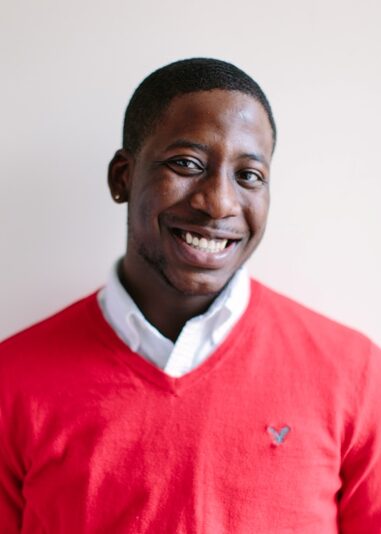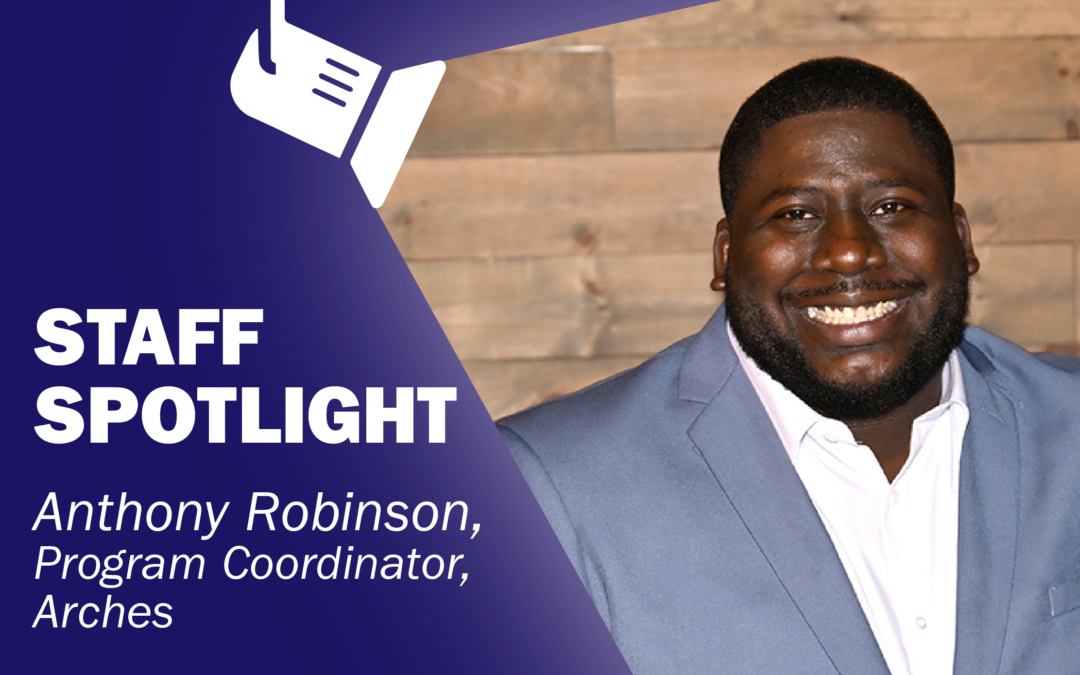When Anthony Robinson last appeared on JCCA’s blog, in 2015, he was a 19-year-old college freshman described as “charming, motivated, ambitious.” A strong student and accomplished track athlete who spoke of a career in law enforcement, Anthony was clearly a young man on a promising path. But finding that path had not been easy. During a challenging adolescence, Anthony spent time on the Pleasantville Cottage Campus and in a JCCA group home, where he worked to untangle complex emotions and come to grips with the upheaval he’d experienced. “I struggled with questions I couldn’t fully answer,” he’d later say. “Had I done something wrong? Had my parents done something wrong? Why can’t I go home?” Eight years later, Anthony remains a fixture of the JCCA community. We sat down with him to fill in the next chapters of his life.
The previous profile captures you on the cusp of adulthood. Let’s pick up the story from there.
 I’d just started college. JCCA gave a me a scholarship which helped in breaking down the financial barriers I’d seen stop so many from progressing in school. But it wasn’t just about money; they also helped me lay out a practical plan to stay on track to my degree. I aged out of care during those years, but the staff were still there for me as I transitioned to independence. At times I still called them for help with little things, like how to pay my ConEd bill.
I’d just started college. JCCA gave a me a scholarship which helped in breaking down the financial barriers I’d seen stop so many from progressing in school. But it wasn’t just about money; they also helped me lay out a practical plan to stay on track to my degree. I aged out of care during those years, but the staff were still there for me as I transitioned to independence. At times I still called them for help with little things, like how to pay my ConEd bill.
In school I studied criminal justice and human services. I’m sure my academic interests grew out of my own experiences––and also those of my peers. I saw many negative outcomes from fellow youth in the foster care as they aged out of the system. It was both discouraging and motivating. During my senior year I wrote a paper researching the struggles of transition age foster youth. I realized that a handful of issues––education, homelessness, access to resources, lack of long term connection––played a big role in determining success or lack thereof. I wanted to do something for these youth, not just academically but practically.
This is when you begin to realize that a career path was presenting itself?
That’s right. I started as a JCCA employee as an education advocate. My message––and my example––was that education is attainable as a foster youth. If I could do it, they could do it. I’d been ambitious, yes, but I also had a lot of support. I learned how to navigate this multifaceted system––not just JCCA, but ACS, NYCHA, and beyond. If you don’t have some help you’re going to get lost. My mission was to be that guide for young people in the positions I was once in. And of course I stayed in school myself during this time, earning my Master’s.
Later a position opened as a Fair Futures youth coach. I was able to connect and gain the ear of young people easily. Their experiences resonated with my own. We were all teens once. You remember what it’s like not to want to hear the message an adult authority is giving you. How the message is delivered, and who delivers it, can make all the difference.
I had a lot of successful outcomes and after a year I was promoted to a coordinator position. I got to mentor coaches, influence programming, and build community. That was key. JCCA never felt like an “agency” to me––it was a family. The staff were the people who cared about me, who were invested in me, and I wanted to give back the same way. I loved the work.
At 19 you were talking about going into law enforcement or becoming a foster care attorney. Fast forward to the present moment and you’re coordinating a new program, Arches, that combines these interests.
It feels like a natural next step for me. Arches exists to support youth who’ve been involved with the criminal justice system by pairing them with a mentor who has lived experience. This kind of engagement is deeply needed.
Kids in challenging circumstances often get labeled a bad kid, a troubled kid, a delinquent. These labels become an excuse to forget about a person, to marginalize them or write them off. At Arches we are aiming to reintegrate this these young people into meaningful social connections––to school, family, work, and community. That builds hope and purpose.
Some of our clients don’t even know who to put down as their emergency contact. That’s alarming. I wonder who they call when they’re having a bad day, when they need to vent or need someone to pick them up. With Arches they know they’ll have someone in their corner, no matter what. And that’s been the motivation behind my career.
